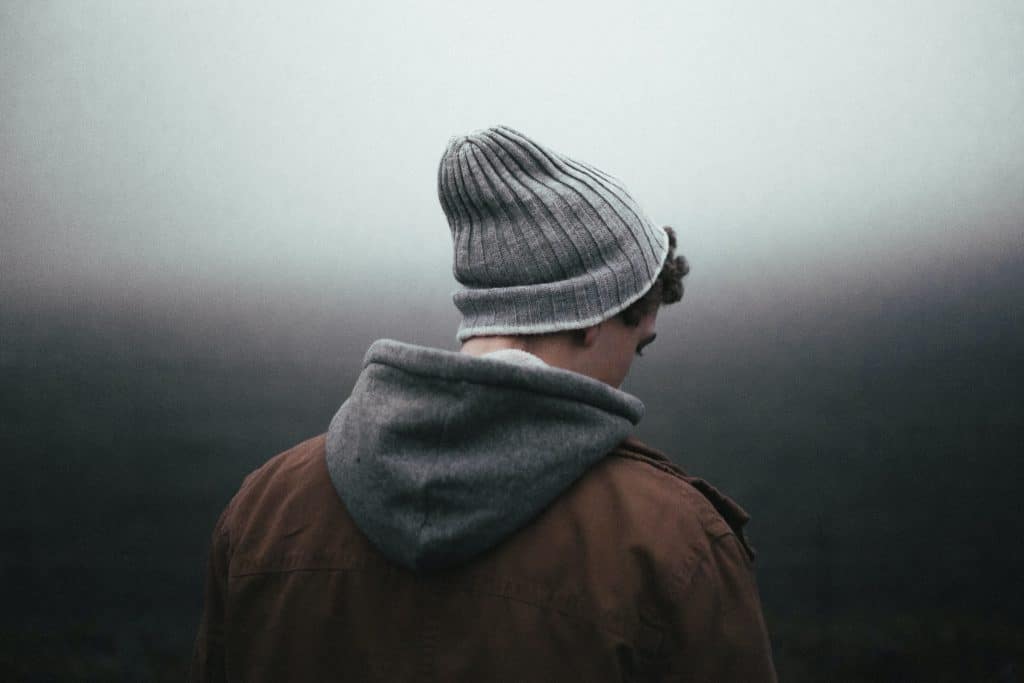Lifestyle
Rabbi Ben Gorelick Plans to Use Religious Freedom Against an 8-Year Minimum Psychedelic Charge

“I have faith in the law. I have faith in our lawyers. I have faith in our ability to practice these things,” the rabbi said.
It’s not common to hear from a defendant during an ongoing case, especially when involving felony drug charges. Denver-based Rabbi Ben Gorelick is bucking that norm. Instead, the 42-year-old is using the media to amplify his message about psychedelic ceremonies, as well as their connection to Judaism and numerous other religions.
Aware of the potential legal consequences, Gorelick appeared anything but fazed by the situation when he spoke with High Times in early June. Calm, friendly and confident, the Rabbi said he was ready for his day in court—whenever that may come.
A Religious Awakening Leads To Psychedelics
Religion has always been part of the Gorelick family. The first decade of Ben’s life was spent in a tight-knit Orthodox community in northern New Mexico. At 10, a move to Albuquerque saw the family join a conservative Jewish synagogue when they couldn’t find an Orthodox community nearby.
“I had a very strongly religious childhood and upbringing, which I mostly appreciate,” said Gorelick.
He credits his religious upbringing for driving home critical life lessons, including his small role in a larger society. Despite the largely positive experiences, Gorelick felt his upbringing left him naive, thinking life was fair and equal for all. That viewpoint and his connection to religion waned after moving to Alaska at 17 for college.
He always loved nature, with Alaska making the fondness stronger. Two years in, however, Gorelick’s views would be immensely tested when a close friend died in his arms during an avalanche. The experience and reading Nietzsche propelled him in a direction away from religion. He searched for life’s answers, often ending up in nature.
By 25, he had co-founded Mountain Training School, a program for aspiring mountain guides. He claims that most people can learn about the mountains with four years of training. Developing the needed personal traits to be a mountain guide is more complicated. When shaping the curriculum, Gorelick relied on his religious background—in particular, Mussar, a traditional Jewish spiritual development path for awareness, wisdom, and transformation.
“I stuck a secular skin right over the top of this very old Jewish thing,” he said, adapting portions to resonate with outdoor guide students.
Gorelick left the school In 2015 after 11 years. He claims to have done so to find more opportunities to work with introspection and human growth. To do so, he turned to rabbinical school. Instead of finding religious insights, he felt that “seminary was a law school for 4000-year-old laws.”
Deflated by the experience and other interactions with fellow Rabbis in the years since Gorelick searched for a way to create transcendent experiences. In 2018, he found his answer in Kabbalah, a school of Jewish mysticism. The religion gained mainstream attention in the early 2000s as part of a celebrity religious wave, most notably taken up by Madonna.

Gorelick said that Kabbalah’s underpinning component is breathwork, with ecstatic sound, movement, and psilocybin sacraments playing critical roles. The sacraments reportedly marked the first time the then-38-year-old touched any prohibited drug. His first trip, going down in a friend’s apartment, brought about a life-changing experience.
“That was the very first time in my life I had felt God, like that place of oneness and openness,” he recalled. “Holy shit,” Gorelick added.
He began forming psychedelic circles with other Rabbis and cantors after realizing most of his peers had not experienced anything similar. The Sacred Tribe was formed in late 2019.
“It started out and still exists as a children’s religious school,” the Rabbi pointed out, reporting to have over 1,000 students enrolled today. Like MTS, the school uses Mussar as its model. Minors are not given psychedelic sacraments.
In 2020, an adult component was added. Gorelick said the group chose to make their ceremonies public knowledge rather than operate underground like various other groups he reports are doing so today.
COVID mostly derailed in-person interactions until late 2020. Since then, the group had picked back up, with over 260 members in the adult cohort, with the average member age hovering in the mid-40s.

From Fire Inspection To Felony Charges
By 2021, The Sacred Tribe was holding regular Friday night sacrament ceremonies, with members typically participating once a quarter, according to Gorelick. Working with 39 psilocybin strains, the community aimed to help members with various intentions, from embarking on an inner journey to sparking creativity.
Gorelick, who holds a degree in chemical engineering, said the group never intended to skirt laws. Instead, he said the focus has always been to gain federal religious exemption status via the DEA’s Religious Freedom Restoration Act.
Following the agency’s instructions, Gorelick said there is “the caveat that at some point in time, they’re going to come knocking on your door” to prove the religious practice and ceremonies are genuine. With that day always looming, the group prepared, working with psychedelics professionals to ensure compliance with Colorado and federal laws. The community has partnered with professionals from Johns Hopkins University and various psychedelic labs along the way.
Still, they did not expect their day with the authorities to happen in January 2022.
It all went down during a fire inspection. Gorelick claims the inspector mistook him for a well-known drug dealer in the area. Hours later, a warrant was granted. Authorities searched the group’s facility, apprehending one employee and confiscating every mushroom on-site. Gorelick was arrested weeks later and charged with possession with the intent to manufacture or distribute a controlled substance. If found guilty, he faces a minimum of eight years in prison.

He’s since pushed back on the charges, pointing toward the group’s reputation as evidence of compliance.
“There are no complaints lodged against us,” he claimed.
He claims to follow all regulated standards and guidelines, producing every sacrament in a commercial facility.
“We’re not going to do it in Larry’s closet,” he remarked.
More so, Gorelick points towards Kabbalah’s connection to psilocybin ceremonies. Dating back thousands of years, he contends the group is within its rights and is ready to prove its exempt status. The Rabbi is prepared to demonstrate their efforts have always been spiritual, intentional, and within their rights.
“It still feels like a conversation rather than anything,” he said of the proceedings.
That feeling may come from Gorelick’s confidence or maybe from any remaining childhood naivety he carries about society. In this case, it appears more of the former than the latter. He cites federal laws dating back to the 90s that support Native American tribes using peyote and other psychedelic ceremonies. He claims Colorado law predates the federal ruling his defense may cite.
Gorelick’s court date is slated for late June but could be pushed back. Still, the Rabbi feels the legal process is moving quickly.
“As much as you feel like four months is a long time, it’s a very, very short period in the legal world,” he opined. While awaiting his day in court, a Change.org petition and a GoFundMe for his legal fight have been launched.
More than just his freedom, Gorelick hopes his case earns religious practice its place in the psychedelics conversation alongside medical and recreational use.
The Sacred Tribe continues to practice today using breathwork and dinners as keys to exploration. They continue to explore their connection and options with psychedelics. As Gorelick and The Sacred Tribe figure out their next steps, he praises the support from the Jewish and psychedelic communities. They, and the evidence he’s assembled, give him faith in the days ahead.
Business
Alabama to make another attempt Dec. 1 to award medical cannabis licenses

Alabama regulators are targeting Dec. 1 to award the first batch of medical cannabis business licenses after the agency’s first two attempts were scrapped because of scoring errors and litigation.
The first licenses will be awarded to individual cultivators, delivery providers, processors, dispensaries and state testing labs, according to the Alabama Medical Cannabis Commission (AMCC).
Then, on Dec. 12, the AMCC will award licenses for vertically integrated operations, a designation set primarily for multistate operators.
Licenses are expected to be handed out 28 days after they have been awarded, so MMJ production could begin in early January, according to the Alabama Daily News.
That means MMJ products could be available for patients around early March, an AMCC spokesperson told the media outlet.
Regulators initially awarded 21 business licenses in June, only to void them after applicants alleged inconsistencies with how the applications were scored.
Then, in August, the state awarded 24 different licenses – 19 went to June recipients – only to reverse themselves again and scratch those licenses after spurned applicants filed lawsuits.
A state judge dismissed a lawsuit filed by Chicago-based MSO Verano Holdings Corp., but another lawsuit is pending.
Source: https://mjbizdaily.com/alabama-plans-to-award-medical-cannabis-licenses-dec-1/
Business
Pot Odor Does Not Justify Probable Cause for Vehicle Searches, Minnesota Court Affirms

The Minnesota Supreme Court affirmed that cannabis odor does not constitute probable cause to search a vehicle.
If Minnesota police search a vehicle solely based upon the smell of pot, they can’t justify searching a vehicle, even if there is evidence found of other alleged crimes. Even after appealing a lower court decision to suppress the evidence—twice—the Minnesota Supreme Court agreed, and the dismissal of his charges stands.
In a ruling filed regarding a case the State of Minnesota Court of Appeals on Sept. 13, the Minnesota Supreme Court affirmed that cannabis odor does not constitute probable cause to search a vehicle.
The case has been ongoing for two years. On July 5, 2021, just before 10 p.m., a Litchfield police officer stopped a car for an obscure local law: the light bar mounted on the vehicle’s grill had more auxiliary driving lights than are permitted under Minnesota law. The officer asked the driver, Adam Lloyd Torgerson, for his license and registration. Torgerson, his wife, and his child were present in the vehicle. The officer stated that he smelled pot and asked Torgerson if there was any reason for the odor, which he initially denied. But cops found a lot more than just pot.
A backup officer was called in. The couple denied possessing any pot, but Torgerson admitted to smoking weed in the past. The second officer stated that the weed odor gave them probable cause to search the vehicle and ordered them to exit the vehicle. The first officer searched the vehicle and found a film canister, three pipes, and a small plastic bag in the center console. The plastic bag contained a white powder and the film canister contained meth, which was confirmed in a field test.
Torgenson was charged with possession of meth pipe in the presence of a minor and fifth-degree possession of a controlled substance after the unwarranted search of Torgerson’s vehicle.
Police Aren’t Allowed to Do That, Multiple Courts Rule
But the search had one major problem—cops weren’t searching for a meth pipe. They only searched his car because they could smell pot, and the meth and paraphernalia were a surprise for everyone. Still, they had no grounds to search the vehicle. The man’s charges were later dismissed after the district court determined the odor of cannabis alone was insufficient basis for probable cause to search the vehicle, regardless of whatever other drug paraphernalia they found.
The state appealed the case, but the Minnesota Court of Appeals affirmed the district court’s decision. The case was appealed a second time, this time to the Minnesota Supreme Court, which agreed with the lower court’s ruling.
“This search was justified only by the odor of marijuana emanating from the vehicle,” the Minnesota Supreme Court decision reads. “Torgerson moved to suppress the evidence found during the search, arguing that the odor of marijuana, alone, is insufficient to create the requisite probable cause to search a vehicle under the automobile exception to the warrant requirement. The district court granted Torgerson’s motion, suppressed the evidence, and dismissed the complaint. The State appealed. The court of appeals affirmed the district court’s suppression order. Because we conclude that the odor of marijuana emanating from a vehicle, alone, is insufficient to create the requisite probable cause to search a vehicle under the automobile exception to the warrant requirement, we affirm.”
It amounts to basic human rights that apply—regardless of whether or not a person is addicted to drugs.
Other States do Precisely the Same Regarding Pot Odor as Probably Cause
An Illinois judge ruled in 2021 that the odor of cannabis is not sufficient grounds for police to search a vehicle without a warrant during a traffic stop.
Daniel J. Dalton, Associate Judge of the 14th Judicial Circuit, issued a ruling in response to a motion to suppress evidence in the case of Vincent Molina, a medical cannabis patient arrested for cannabis possession last year.
In that case, Molina was arrested despite the decriminalization of small amounts of cannabis in Illinois in 2019 with the passage of the Illinois Cannabis Regulation and Tax Act.
In some states, the issue of probable cause and cannabis was defined through bills.
Last April, the Maryland House of Delegates approved a bill that reduces the penalties for public cannabis consumption and bars police from using the odor of cannabis as the basis for the search of an individual or auto. Under Maryland’s House Bill 1071, law enforcement officers would be prohibited from using the odor of raw or burnt cannabis as probable cause to search a person or vehicle.
The rulings represent the rights of citizens when they are pulled over by police, even if there are hard drugs involved.
Business
Can Cannabis Help Seasonal Depression

Ultimately, seasonal affective disorder can set in as quickly and seamlessly as the fall foliage on the trees outside.
The weather and foliage on the trees aren’t the only things that are changing around this time of year. As the sun starts to set earlier and earlier, peoples moods can be affected by the decrease in sunlight. This is often known as seasonal affective disorder (SAD), and it can make the winter months miserable for lots of people. Can cannabis help seasonal depression?
Fortunately for those that do suffer from SAD, there are numerous remedies that can make this time of year more bearable. Exercise, vitamin supplements and even marijuana can have an enormous impact on fighting against the disorder. While there are resources for offsetting the disorder, getting a full understanding of the problem is paramount in being able to overcome it.

Seasonal Affective Disorder Symptoms
One of the most crucial steps in combating SAD is properly identifying its symptoms. Some of those symptoms include:
- Anxiety
- Social withdrawal
- Sleepiness and fatigue
- Weight gain
- Suicidal thoughts
- And several others
Those who are suffering from any of these symptoms should refrain from self-diagnosis and seek professional assistance. That professional assistance could lead to more resources to fight the disorder such as an antidepressant prescription.
How Common is Seasonal Affective Disorder?
In recent years, more and more people who suffer from seasonal affective disorder have begun opening up about their struggles. An estimated 10 million Americans are said to be currently dealing from SAD. Additional research shows women are four times more likely to be diagnosed with the disorder than men. SAD also appears to be more prevalent among people with pre-existing mental health conditions like bipolar disorder.
The number of people across the globe who suffer from seasonal depression is slightly lower than that of the United States. Only about 1-2% of the global population is said to suffer from seasonal depression while about 5% of the U.S population suffers from SAD.

How to Fight Seasonal Affective Disorder
There are a number of proven ways to offset some of the sadness that comes with the changing of the seasons. For example, cannabis contains cannabinoids that can have a positive impact on mood, while potentially increasing serotonin levels. When it comes to decreasing anxiety levels, that’s where CBD comes into play. By working with our body’s endocannabinoid system, CBD has been seen as instrumental in boosting dopamine levels.
Aside from cannabis, there are a handful of other at-home methods that can help alleviate the symptoms of seasonal affective disorder. Spending more time with friends, family and loved ones can be highly effective in offsetting some SAD symptoms. The same can be said for making an effort to get lots of sunlight and getting regular exercise.
Ultimately, seasonal affective disorder can set in as quickly and seamlessly as the fall foliage on the trees outside. Knowing that you aren’t alone, and having the best practices for fighting it, can make the fall and winter months better than you could have ever imagined.
Source: https://thefreshtoast.com/medical-marijuana/can-cannabis-help-seasonal-depression/
-

 Business2 years ago
Business2 years agoPot Odor Does Not Justify Probable Cause for Vehicle Searches, Minnesota Court Affirms
-

 Business2 years ago
Business2 years agoNew Mexico cannabis operator fined, loses license for alleged BioTrack fraud
-

 Business2 years ago
Business2 years agoAlabama to make another attempt Dec. 1 to award medical cannabis licenses
-

 Business2 years ago
Business2 years agoWashington State Pays Out $9.4 Million in Refunds Relating to Drug Convictions
-

 Business2 years ago
Business2 years agoMarijuana companies suing US attorney general in federal prohibition challenge
-

 Business2 years ago
Business2 years agoLegal Marijuana Handed A Nothing Burger From NY State
-

 Business2 years ago
Business2 years agoCan Cannabis Help Seasonal Depression
-

 Blogs2 years ago
Blogs2 years agoCannabis Art Is Flourishing On Etsy













